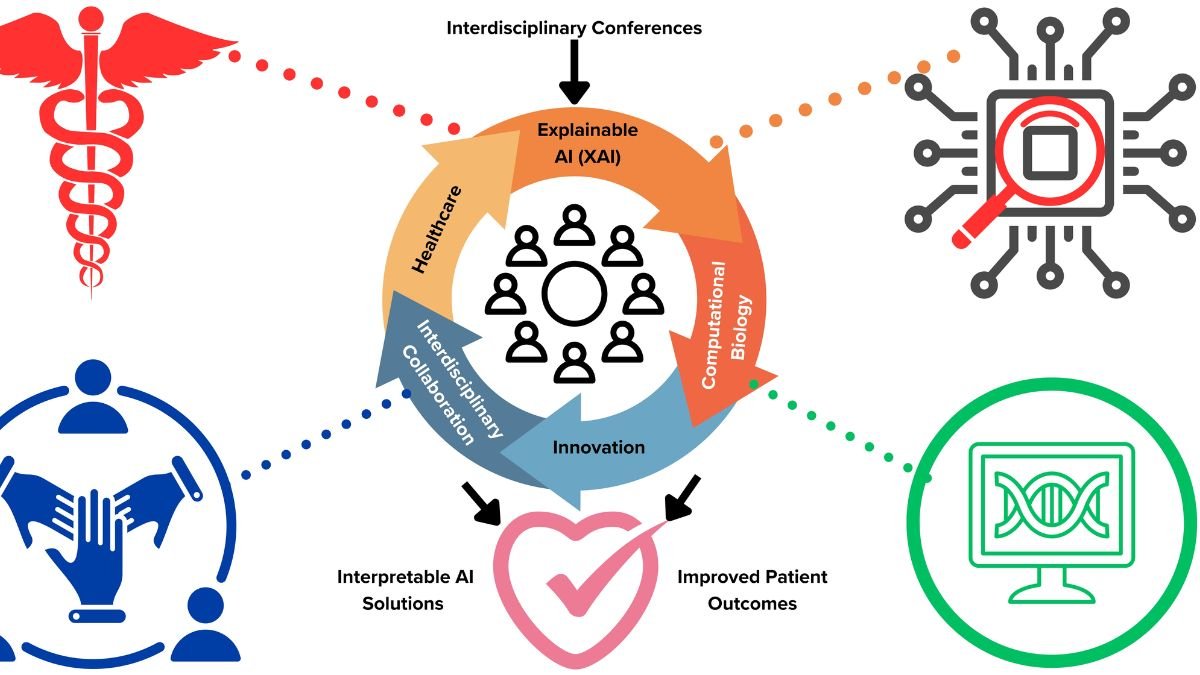In the world of science and technology, biotechnology is the field that has not only made human life easier but has also brought revolutionary changes in health, agriculture, environment and industrial development. But today the future of biotech does not depend on only one subject or traditional methods. Now its real future rests on cross-disciplinary knowledge.
That is, biotechnology can develop rapidly only when it works in conjunction with other subjects like mathematics, engineering, information technology (IT), physics, chemistry and social sciences. Let us understand in detail how this multidisciplinary approach is shaping the future of biotech.
Relationship between biotechnology and multidisciplinary knowledge
Earlier, biotech was limited only to biology and chemistry. Scientists used to do research on a single protein, gene or microbe and remained limited to that. But today technologies like genomics, artificial intelligence (AI), big data and nanotechnology have become part of every part of biotech.
For example – drug discovery is no longer limited to the laboratory. Computer based modeling, machine learning and data science are also being used in this. This kind of collaboration is the result of multidisciplinary knowledge.
Multidisciplinary approach in healthcare
The healthcare sector is the biggest beneficiary of biotechnology. Now not only doctors and biologists but also data scientists, engineers and AI experts are involved in the treatment of diseases like cancer, diabetes and heart disease.
Precision Medicine: Preparing personalized treatment for the patient by looking at his genetic profile. This work is possible only with the coordination of genomics, computer science and medical research.
3D Printing and Bioengineering: A wonderful combination of biotech and engineering can be seen in artificial organs and tissue engineering.
Revolution in Agriculture
Agriculture has always been an important area of biotech. The multi-disciplinary approach has made it even more modern.
Gene Editing: Using CRISPR technology, seeds are being made that can survive even in conditions like drought or flood.
Role of Data and AI: Monitoring of fields with drones and satellite imaging, checking soil quality and crop estimation is now possible with the combination of data science and biotech.
Sustainable Farming: Environmental science and biotech are jointly developing techniques that can get more production even with the use of less water and fewer chemicals.
Environmental Protection and Biotech
Today the world is facing big challenges like pollution, global warming and waste management. Biotechnology alone cannot solve these problems, but it requires the cooperation of environmental science, engineering and chemistry.
Bioplastics: Biotech and chemical engineering play an important role in making natural and biodegradable plastics instead of petroleum-based plastics.
Waste Management: Converting waste into energy and compost with the help of microorganisms is a great example of multidisciplinary research.
Power of Data Science and AI
In today’s time, the amount of data coming out of biotech research is so huge that it has become imperative to take the help of AI and data science to understand and use it.
AI is being used to analyze billions of data points in clinical trials of new medicines.
It is impossible to understand the data coming out of processes like DNA sequencing without machine learning.
That is, the alliance of biology and computer science is increasing the speed of biotechnology manifold.
Confluence of Nanotechnology and Biotech
Nanotechnology has taken biotech to new heights. Using small nanoparticles, it has now become possible to deliver medicines directly to diseased cells.
In cancer therapy, nanoparticle-based medicines provide precise and effective treatment.
In food preservation too, nanotechnology is bringing new solutions in collaboration with biotech.
Industrial development and biotechnology
Not only health and agriculture, the industry is also taking advantage of multidisciplinary biotech.
Biofuel: Synergy of chemistry, environmental science and biotech is very important to create renewable energy.
Biopharmaceuticals: Engineering and biotech together are making the production of new medicines and vaccines faster and economical.
Changes in education and research
The biotech scientist of the future will not be limited to biology only. He will also have to have knowledge of programming, data analytics, machine learning and engineering. This is the reason why universities around the world are starting interdisciplinary courses today.
Along with biotech, AI and computer science are also being taught in top universities of India, America and Europe.
Social and ethical aspects
When many subjects come together to develop a field, it becomes necessary to understand its social and ethical aspects as well. For example –
- Is it right to change humans through gene editing?
- How will the prices of medicines made by combining biotechnology and AI reach the common man?
To find solutions to such questions, biotechnology is being used.
Conclusion
The face of future biotechnology will be determined by multidisciplinary knowledge. It is no longer confined to the laboratory but will move forward through the combination of engineering, computer science, environmental science, medicine and sociology.
The multidisciplinary approach is the power that will take biotech to new heights in the coming years. It will not only make treatment of diseases easier but will also give new direction to food security, energy, environment and industry.
